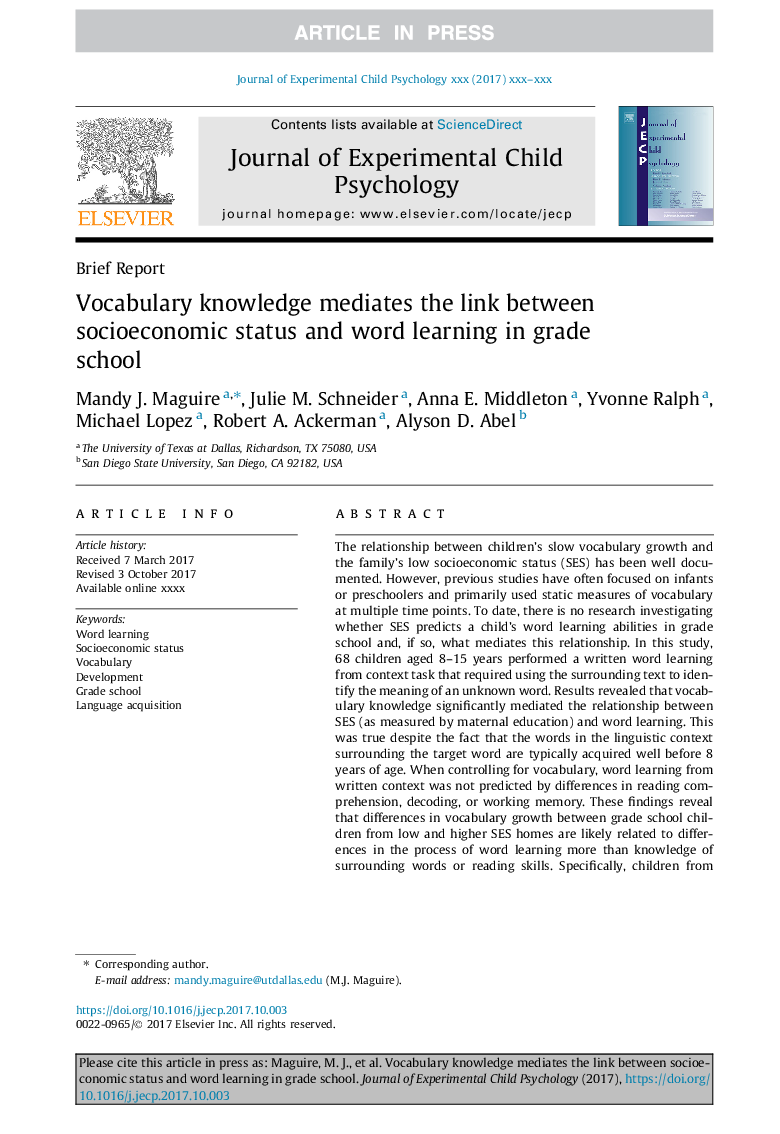| Article ID | Journal | Published Year | Pages | File Type |
|---|---|---|---|---|
| 7274287 | Journal of Experimental Child Psychology | 2018 | 17 Pages |
Abstract
The relationship between children's slow vocabulary growth and the family's low socioeconomic status (SES) has been well documented. However, previous studies have often focused on infants or preschoolers and primarily used static measures of vocabulary at multiple time points. To date, there is no research investigating whether SES predicts a child's word learning abilities in grade school and, if so, what mediates this relationship. In this study, 68 children aged 8-15 years performed a written word learning from context task that required using the surrounding text to identify the meaning of an unknown word. Results revealed that vocabulary knowledge significantly mediated the relationship between SES (as measured by maternal education) and word learning. This was true despite the fact that the words in the linguistic context surrounding the target word are typically acquired well before 8 years of age. When controlling for vocabulary, word learning from written context was not predicted by differences in reading comprehension, decoding, or working memory. These findings reveal that differences in vocabulary growth between grade school children from low and higher SES homes are likely related to differences in the process of word learning more than knowledge of surrounding words or reading skills. Specifically, children from lower SES homes are not as effective at using known vocabulary to build a robust semantic representation of incoming text to identify the meaning of an unknown word.
Related Topics
Social Sciences and Humanities
Psychology
Developmental and Educational Psychology
Authors
Mandy J. Maguire, Julie M. Schneider, Anna E. Middleton, Yvonne Ralph, Michael Lopez, Robert A. Ackerman, Alyson D. Abel,
